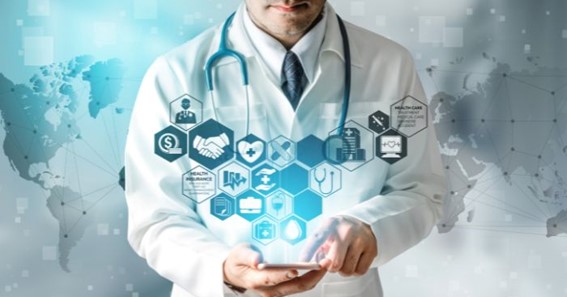Many industries are expected to undergo significant transformations. The healthcare industry is no exception, as 5G technology is expected to revolutionize healthcare services by enabling the delivery of more effective and efficient medical care. Telemedicine, which is the delivery of healthcare services through telecommunications technology, is expected to be the most significant beneficiary of the new 5G technology. In this article, we will discuss 5G technology and its impact on healthcare, particularly telemedicine.
What is 5G Technology?
5G is the 5th generation of mobile network technology. It is an upgrade from the current 4G/LTE network and provides faster data speeds, higher capacity, and lower latency. 5G technology uses a higher frequency spectrum that allows for more significant data transmission and communication between devices. The technology is expected to bring significant changes to various industries, including healthcare.
Impact of 5G Technology on Healthcare
The healthcare industry is expected to benefit significantly from 5G technology. The technology’s high-speed data transfer capability and low latency will enable healthcare providers to deliver medical services remotely. This capability will be particularly beneficial for patients living in rural and remote areas, where access to medical services is limited. 5G technology will allow healthcare providers to offer remote consultation, diagnosis, and treatment, which will reduce the need for in-person medical visits.
Telemedicine and 5G Technology
In telemedicine, healthcare services are provided remotely using telecommunications technology. With the advent of 5G technology, telemedicine is expected to undergo significant transformations. The technology’s low latency and high-speed data transfer capability will enable healthcare providers to offer more advanced telemedicine services, such as real-time consultations, remote monitoring, and surgical procedures. The following are some of the ways in which 5G technology is expected to impact telemedicine:
Real-time Video Consultations
The low latency and high-speed data transfer capability of 5G technology will enable healthcare providers to offer real-time video consultations to patients. This capability will allow patients to have remote consultations with doctors, reducing the need for in-person visits. Real-time video consultations will also enable healthcare providers to provide quick diagnosis and treatment, reducing the time patients spend waiting for medical services.
Remote Patient Monitoring
Mobile phone 5g technology enables healthcare providers to monitor patients remotely. Remote patient monitoring involves the use of technology to track patients’ health status, such as blood pressure, heart rate, and blood sugar levels. This capability will be particularly beneficial for patients with chronic illnesses who require continuous monitoring. The technology will enable healthcare providers to offer remote monitoring, reducing the need for in-person visits and improving patients’ quality of life.
Surgical Procedures
5G technology will enable healthcare providers to offer surgical procedures remotely. The technology’s high-speed data transfer capability will enable doctors to perform surgeries remotely, reducing the need for patients to travel long distances for medical services. Remote surgeries will also reduce the time patients spend in hospitals, reducing healthcare costs and improving patients’ quality of life.
Conclusion
5G technology is expected to revolutionize healthcare services, particularly telemedicine. The technology’s high-speed data transfer capability and low latency will enable healthcare providers to offer more advanced telemedicine services, such as real-time consultations, remote monitoring, and surgical procedures. The technology will be particularly beneficial for patients living in rural and remote areas, where access to medical services is limited. As 5G technology continues to develop, it is expected to bring significant changes to the healthcare industry, improving patients’ quality of life and reducing healthcare costs.






